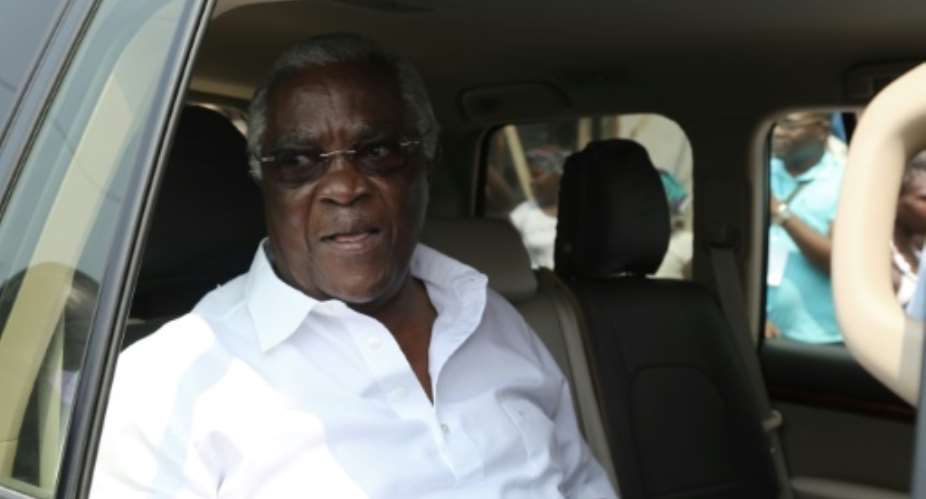São Tomé (AFP) - The president of the west African state of Sao Tome and Principe, attacking the country's elections for head of state as fraudulent, says he will not take part in next Saturday's runoff vote.
In a letter published Tuesday by the Constitutional Tribunal, the country's top court, 78-year-old president Manuel Pinto da Costa said he refused to participate in the second round of voting.
"To continue to take part in a process of this kind would be tantamount to approving it. I will not do so as a candidate, and even less so as president of the republic," Pinto da Costa said in the letter, dated August 1.
"No one can be a candidate in the presidential election against his will."
The first round of voting on July 17 was marked by unrest and an unsuccessful challenge by Pinto da Costa, who came in second to former prime minister Evaristo Carvalho.
He called for the process to be scrapped, saying there had been electoral fraud, but his bid was rejected by the court.
Carvalho, the candidate of the ruling Independent Democratic Action party, had initially been credited with a 50.2 percent score.
That would have been enough to scrape past the required 50-percent mark needed for an outright win.
But election officials revised the score after taking into account ballots cast by voters in the diaspora and delayed balloting in one district.
As a result, Carvalho's tally was given as 49.8 percent, compared to 24.83 for Pinto da Costa. With 16 percent of the vote, Maria das Neves came third.
First round turnout was 64 percent of a total electorate of just over 111,000 in a country of around 200,000 people.
An archipelago off the west African coast, Sao Tome and Principe is the continent's second smallest state.
The country gained independence from Portugal in 1975 and has been a democracy since 1991. It depends heavily on international aid.
Executive power is shared between the president and the prime minister and has led to turf wars in the past.





 'Kill whoever will rig Ejisu by-election' – Independent Candidate supporters inv...
'Kill whoever will rig Ejisu by-election' – Independent Candidate supporters inv...
 Ashanti Region: ‘Apologize to me for claiming I owe electricity bills else... – ...
Ashanti Region: ‘Apologize to me for claiming I owe electricity bills else... – ...
 Ghana is a mess; citizens will stand for their party even if they’re dying — Kof...
Ghana is a mess; citizens will stand for their party even if they’re dying — Kof...
 Internet shutdown an abuse of human rights — CSOs to gov't
Internet shutdown an abuse of human rights — CSOs to gov't
 Free SHS policy: Eating Tom Brown in the morning, afternoon, evening will be a t...
Free SHS policy: Eating Tom Brown in the morning, afternoon, evening will be a t...
 Dumsor: A British energy expert 'lied' Ghanaians, causing us to abandon energy p...
Dumsor: A British energy expert 'lied' Ghanaians, causing us to abandon energy p...
 What a speech! — Imani Africa boss reacts to Prof. Opoku Agyemang’s presentation
What a speech! — Imani Africa boss reacts to Prof. Opoku Agyemang’s presentation
 Dumsor: Tell us the truth — Atik Mohammed to ECG
Dumsor: Tell us the truth — Atik Mohammed to ECG
 Dumsor: Don't rush to demand timetable; the problem may be temporary — Atik Moha...
Dumsor: Don't rush to demand timetable; the problem may be temporary — Atik Moha...
 Space X Starlink’s satellite broadband approved in Ghana — NCA
Space X Starlink’s satellite broadband approved in Ghana — NCA
